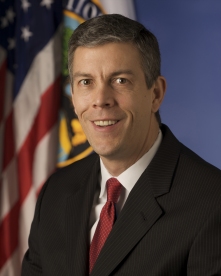Don’t miss the webinar on the Green Education Foundation Pilot Curriculum Project, September 27, 2011 at 1 p.m. Eastern
Link
Victoria Waters, GEF President, will be introducing two new GEF pilot offerings for CTE schools including their Green Building Course which is a one semester, environmental science elective that educates 11th and 12th grade students on green building attributes and benefits, and provides them with the educational resources necessary to understand, identify, and improve environmental inefficiencies within their own school buildings. Topics covered include: sustainable sites, energy sources and conservation, water efficiency and indoor environmental quality as related to building construction, operation and maintenance. The course utilizes a digital resource.
GEF will also be showcasing its brand new professional development course for K-12 faculty entitled Sustainability Education Concepts and Teaching Methods.
This webinar will be recorded. You do not need to pre-register for this webinar. Simply go to this Link about 5 minutes prior to the broadcast. The audio will be heard through your computer speakers. Enter as ‘guest’ and enter your first and last name.
For more information about the webinar content, please contact Dean Folkers at dfolkers@careertech.org.
Green Education Foundation Launches Green Building Course
Molly Hislop, LEED® Green Associate Director, GEF Programs encourages everyone to “Join us for a free Green Building Course–Green Education Foundation’s (GEF) new one-semester Green Building Course is launching pilot versions this fall for 20 schools nationwide. This environmental science elective educates 11/12th grade students on green building attributes and benefits, and provides them with the educational resources necessary to understand, identify, and improve environmental inefficiencies within their own school buildings. The pilot curriculum is currently free and includes six units/75 hours of classroom instruction and an accompanying virtual textbook housed in an online learning management system, as well as a robust audit questionnaire.
If you’re looking for professional development or academic credit, GEF has resources for you, too! Their Sustainability Education Concepts and Teaching Methods pilot course is set to launch on November 1. The 15-hour, online course provides the broad knowledge, skills, and impetus to proceed with curriculum implementation and sustainability initiatives in your classroom and the broader community. Major concepts include biodiversity, renewable energy sources, green technology, the Greenhouse Effect, and climate change in response to natural and man-made causes. Classroom sustainability curricula will be linked to course units by topic and grade. You still have time to register at no-charge* so check it out! (*a fee applies if you are seeking credit, payable to our partner university.)
The Sustainability Education course applies to CTE students, as well! Students will be able to earn credit through coursework and testing while getting hands-on practical experience auditing their school for energy use, water use, and other green building components. Stay tuned for more details!
These programs will build a strong foundation for a very successful National Green Week!”
Questions can be directed to Molly Hislop, LEED® Green Associate Director, GEF Programs at mhislop@greeneducationfoundation.org.
Ramona Schescke, Member Services Manager


 growing number of jobs require workers with greater analytical and interactive skills, but that students are not prepared to enter postsecondary, where they are most likely to acquire these skills. She went on to say that “while the current U.S. education and training system has been shown to provide valuable labor market skills to participants, it could be more effective at encouraging completion and responding to the needs of the labor market.†Her suggestions for improving the system come from CEA’s report Preparing the Workers of Today for the Jobs of Tomorrow which we
growing number of jobs require workers with greater analytical and interactive skills, but that students are not prepared to enter postsecondary, where they are most likely to acquire these skills. She went on to say that “while the current U.S. education and training system has been shown to provide valuable labor market skills to participants, it could be more effective at encouraging completion and responding to the needs of the labor market.†Her suggestions for improving the system come from CEA’s report Preparing the Workers of Today for the Jobs of Tomorrow which we  At a luncheon today at the National Press Club, during which he
At a luncheon today at the National Press Club, during which he 